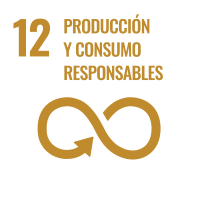Objetivo de Desarrollo Sostenible 12: Promoting Responsible Production and Consumption

The Goal 12 of Sustainable Development focuses on promoting responsible production and consumption patterns, an essential aspect for the sustainability of the planet. This goal seeks to ensure an efficient use of natural resources, as well as to encourage the adoption of sustainable practices across all sectors of the economy. As the global population continues to grow and resources become increasingly scarce, this SDG presents itself as a key response to the challenges facing humanity, promoting conscious consumption and equitable economic growth.
The Goal 12 of Sustainable Development (SDG 12) focuses on ensuring sustainable consumption and production patterns, a crucial component for safeguarding biodiversity and preserving natural resources for future generations. This goal aims to promote a change in consumption and production patterns that are responsible, minimizing environmental impact and encouraging sustainable practices in all sectors. Through appropriate policies and the collaboration of all social actors, it is possible to achieve development that does not compromise the expectations of future generations.
Importance of SDG 12
The economic and social progress of the last century has resulted in increasing environmental degradation that threatens our future. With a projected population of 9.7 billion by 2050, almost three planets will be required to sustain the current level of use of natural resources. It is imperative to ensure access to water, energy, and food responsibly, which means that current models of production and consumption must change radically.
Inequality in Consumption
Inequality in resource use is alarming. High-income countries use six times more materials per person and are responsible for ten times more greenhouse gas emissions than low-income countries. This reliance on resources from poorer countries through global supply chains poses serious challenges for sustainable development.
Targets to Achieve
The push towards responsible consumption includes reducing food waste, making more ecological use of chemicals, and optimizing waste management. It seeks to promote a sustainable lifestyle, and incentivize the private sector to adopt sustainability criteria in their operations, contributing to a shift in economic model.
How Businesses Can Contribute
Businesses play a crucial role in achieving SDG 12. They must integrate circular economy criteria into their models, ensuring reductions in the use of materials, energy, and water. Combating food waste throughout the entire value chain is essential, as well as promoting energy efficiency, the reuse of water resources, and minimizing pollution in their production processes.
Measuring Progress
Companies can use tools like the SDG Compass to measure their contribution to SDG 12. Metrics include the reduction of energy and water consumption, as well as the decrease of generated waste. Through audits and eco-design practices, companies can assess and optimize their processes to align with sustainability expectations.
Available Initiatives and Tools
There are various initiatives that support the implementation of sustainable practices in companies, such as the Global Reporting Initiative and the Accord for a Circular Economy. These platforms provide resources and guides to help businesses foster a responsible business environment and reduce their environmental impact.
Examples of Good Practices
Participating in workshops, creating sustainability reports, and collaborating between companies are effective ways to promote responsible consumption guidelines. The eco-labeling of products, as well as the redistribution of surpluses in the food sector, are clear examples of how to improve social and environmental impact through logistics and resource management.
Conclusion
Implementing SDG 12 is vital to achieving a future where development does not compromise the sustainability of the planet. Only through a joint commitment between governments, businesses, and citizens can the necessary changes be made to ensure a healthy and habitable planet for future generations.
Conclusion on the Goal of Sustainable Development 12
The Goal of Sustainable Development 12 focuses on promoting responsible production and consumption, fundamental aspects to ensure the well-being of current and future generations. This goal highlights the need to transform our behavior patterns towards a more sustainable approach, which implies not only efficiency in the use of natural resources but also equity in the distribution of these resources among different populations.
As the global population grows and resources become increasingly scarce, SDG 12 presents an urgent call to action. Evidence shows that we are currently consuming more resources than the planet can regenerate, leading to the degradation of our ecosystems and threatening the survival of many species, including our own. It is essential to adopt more sustainable production practices that align with the targets set by this goal and contribute to a more balanced environment.
Businesses also play a crucial role in achieving this goal. By incorporating sustainability criteria into their operations, they can reduce their environmental impact and promote responsible use of resources. Furthermore, SDG 12 encourages strengthening infrastructures and systems that facilitate recycling, reuse, and waste reduction in all aspects of economic life.
Finally, achieving the Goal of Sustainable Development 12 requires a joint effort from governments, businesses, and citizens. Raising awareness about the importance of responsible consumption and pushing for policies that promote sustainable practices are necessary steps to achieve positive change. By working together towards this goal, we can ensure a more just and viable future for all.





